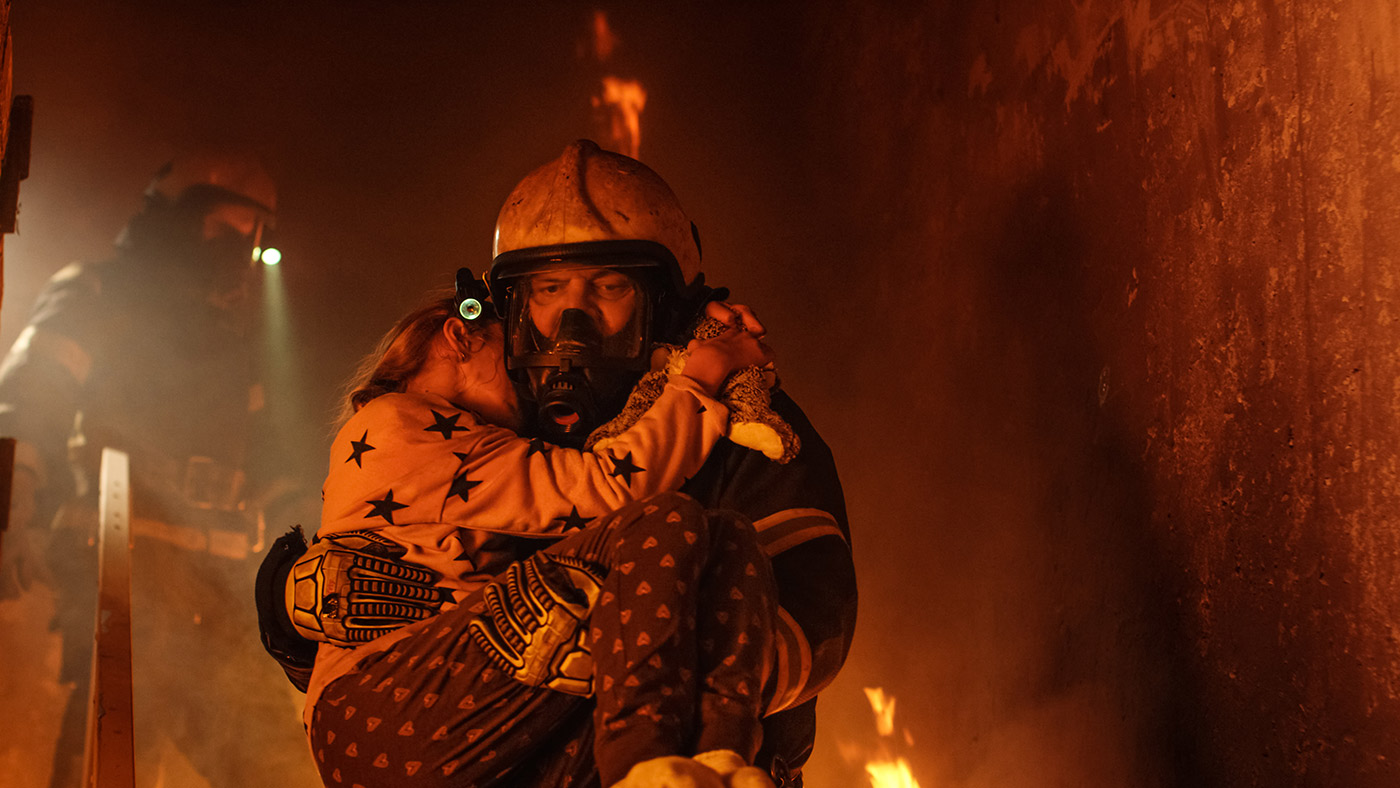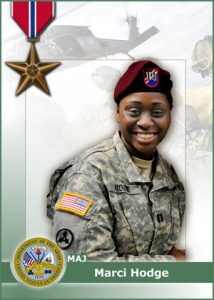
“In this job, you find out what you’re made of; if you can hack it or not.”
Recently promoted to Major, Marci Hodge knows a thing or two about what she’s made of. She’s spent ten years in the Army; 5 years on Active duty and another 5 so far in the Reserve. She returned from Camp Victory in Iraq, her second deployment, a couple of years ago.
“I’m not interested in reliving traumatic events. The job is to create stability and win hearts and minds,” expressed Hodge, who spent 8 months in theater this last time.
MAJ Hodge, who served as Division Humanitarian Assistance Officer as well as the Battalion Sustainment Chief for the 401st Civil Affairs Battalion, is a logistician and civil affairs officer; simply put, “I can move anything,” she said, like thousands of fourth and fifth grade level books for school children that the Department of State had been previously trying to move from Jordan to Iraq for the last few years with no luck.
Or such as in Iskandiayh, one of the 14 different locations her battalion covered in Iraq, where she worked on a project with local government to get a completely staffed plant that had survived the war back to fully functioning capacity. Working with one of the facility’s managers- one of the few who spoke English at the plant- MAJ Hodge’s team on the ground even helped establish organizational practices and human resources, bringing in corporate mentors from the United States.
Her team worked to ensure that the plant would be in a position to operate without the U. S.’s assistance in the future. They brought in older generators to their Forward Operating Base that the Army no longer needed but had the potential to refurbished, and presented the plant with and its employees with their first large project post-war. Local Iraqi truck drivers were also employed to transport the refurbished generators.
“It put folks back to work,” said MAJ Hodge, citing at least a thousand workers associated with the local Iraqi plant’s operations.
And it’s the “folks” she’s interacted with that have made the most significant impression on MAJ Hodge, including the Iraqi locals.
“People matter regardless of where they are,” she said slowly, emphasizing that people are the same despite miles of ocean and geographic boundaries.
MAJ Hodge, awarded the Bronze Star for her meritorious service in Iraq, identified it as a “human connection” one that allows people to relate and help one another.
And according to MAJ Hodge, one would be hard-pressed to find “more amazing people” to work with than the American troops she’s served alongside while in the Army, able to overcome the inevitable obstacles and disappointments that occur while deployed with camaraderie and hard work.
“It’s your duty to give back,” said Hodge. “You give it everything you’ve got.”

